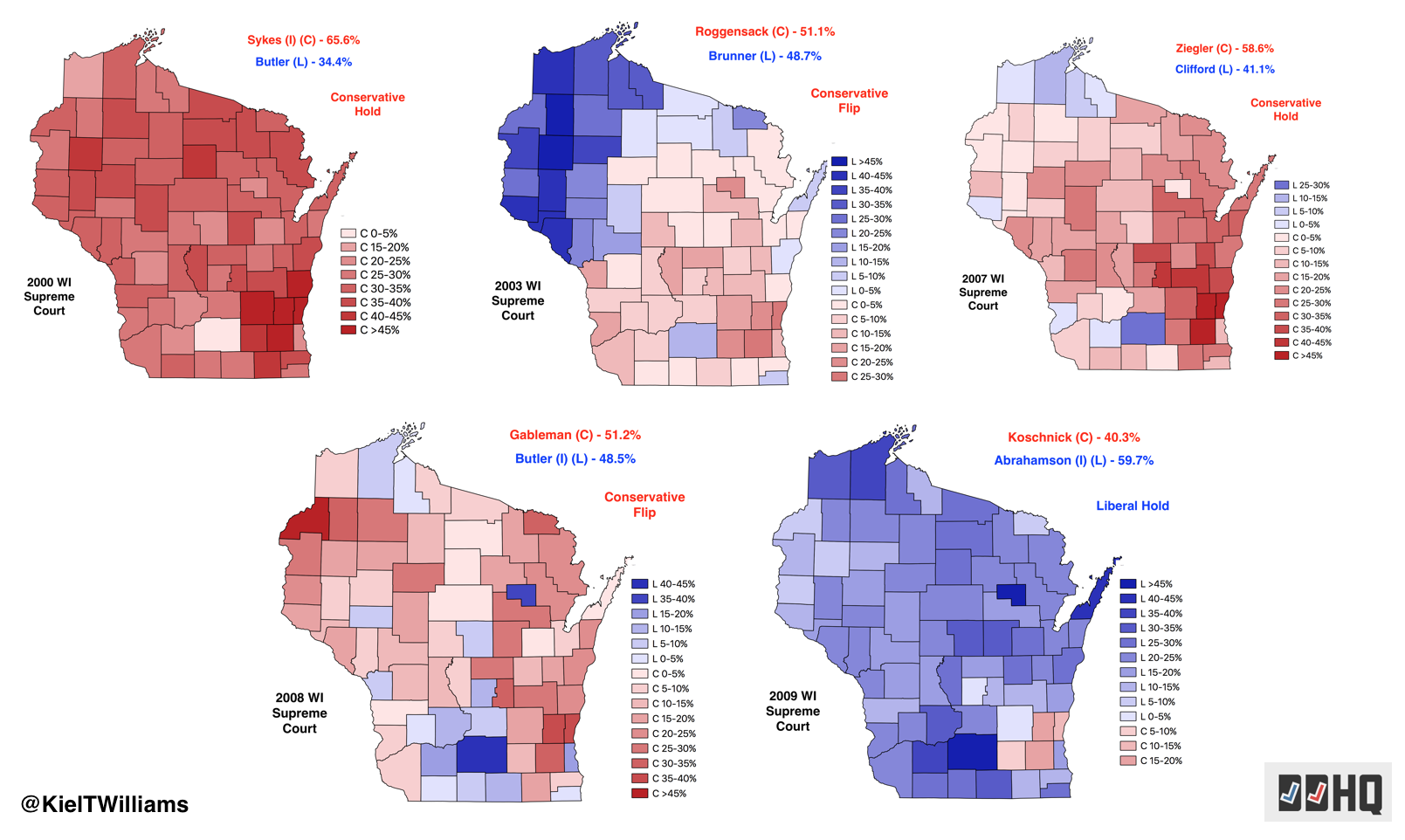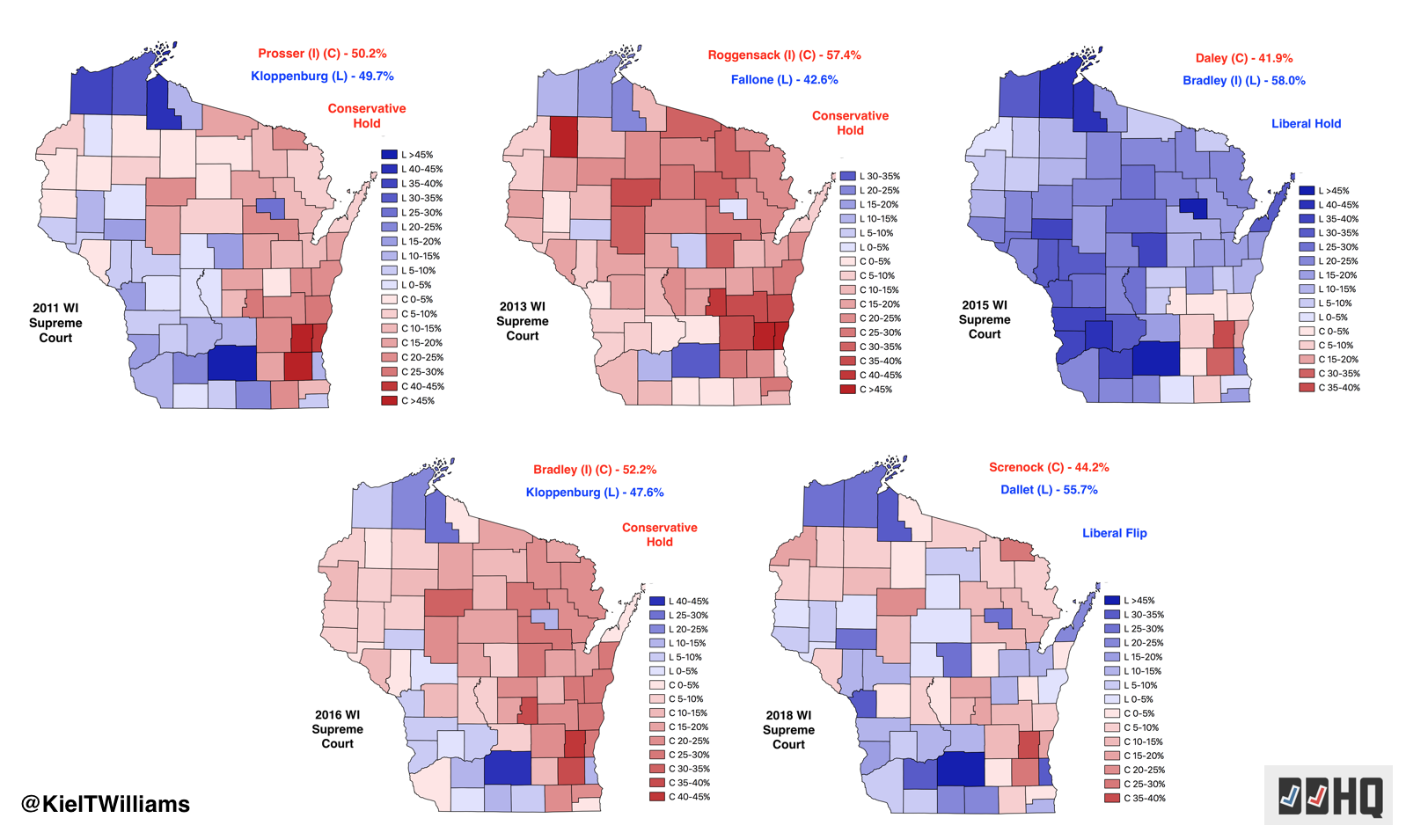Next Tuesday will see Brian Hagedorn face-off against Lisa Neubauer, in a contest to determine the composition of the Wisconsin State Supreme Court. While the court is nominally nonpartisan, its candidates have clear ideological leanings. For instance, Neubauer has received support from the LGBT-focused Human Rights Campaign, while Hagedorn is supported by the NRA.
Conservatives currently hold a 4-3 majority on the 7-member court. Neubauer is running to replace the retiring Shirley Abrahamson, the senior-most member of the court’s liberal block. If liberals hold her seat, they could seize majority control next year, when the Scott Walker-appointed Daniel Kelly faces reelection.

Wisconsin had held 10 contested Supreme Court elections since 2000. Over that time period, the composition of the court has shifted largely in sync with the national mood. Perhaps most notably, 2000 saw the landslide reelection of conservative jurist Diane Sykes. George W. Bush later appointed Sykes to the US Court of Appeals , and she has been short-listed by conservatives for the US Supreme Court since the mid-2000’s. President Trump seriously considered her for the Supreme Court seat that ultimately went to Neil Gorsuch.
As in most judicial elections, incumbents in Wisconsin enjoy a very strong advantage. In 2008, the conservative-aligned Michael Gableman became the first challenger to unseat an incumbent since 1967, after a brutal campaign against liberal justice Louis Butler. Gableman later faced allegations of ethical misconduct, and declined to run for reelection.
These elections also illustrate the extent to which political coalitions in Wisconsin have shifted over the past two decades. Conservative nominees used to consistently carry Milwaukee county, now a backbone of Democratic support in the state. Liberal candidate Ed Brunner’s near-win in 2003 – reliant on support from the rural northern part of the state – would be unrecognizable to a modern Wisconsin Democrat.

The elections since 2011 tell a similar story, with no seats changing ideological valence until the start of the Trump Era.
Perhaps most notable was the near-loss of conservative David Prosser in 2011. The period around 2011 was generally kind to conservatives, but Prosser courted constant controversy, and ran a less-than-ideal campaign. He ultimately resigned in 2016, allowing Scott Walker to appoint his replacement.
Observers widely read Rebecca Dallet’s 11-point win over conservative Michael Screnock in April 2018 as an indication of growing Democratic enthusiasm. Even Scott Walker himself sounded the alarm, foreshadowing his loss to Democratic nominee Tony Evers latter in the year.
Little polling exists for next Tuesday’s race, but Neubauer has outpaced Hagedorn in fundraising. The outcome will provide some indication about whether Democratic momentum has waned, following their November midterm gains.